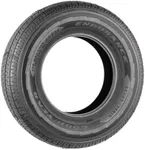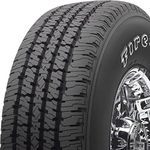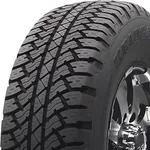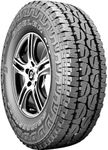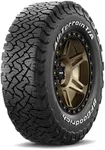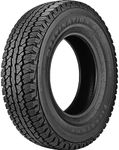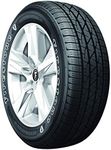Buying Guide for the Best Rv Tires
Choosing the right RV tires is crucial for ensuring a safe and comfortable journey. The tires you select can significantly impact your vehicle's handling, fuel efficiency, and overall performance. It's important to understand the key specifications and how they relate to your specific needs and driving conditions. By considering these factors, you can make an informed decision and find the best tires for your RV.Tire SizeTire size is a combination of numbers and letters that indicate the tire's dimensions, including width, aspect ratio, and diameter. This spec is important because it ensures the tire fits your RV's wheels properly and supports the vehicle's weight. To navigate tire sizes, check your RV's manual or the current tires for the correct size. Choose a size that matches these specifications to maintain safety and performance.
Load RatingLoad rating indicates the maximum weight a tire can support. This spec is crucial for RVs, which are often heavy and carry additional cargo. Load ratings are represented by a number, with higher numbers indicating greater weight capacity. To pick the right load rating, consider the total weight of your RV and its contents. Ensure the tires can handle this weight to avoid overloading and potential tire failure.
Speed RatingSpeed rating denotes the maximum speed a tire can safely maintain. This spec is important for ensuring the tire performs well at highway speeds. Speed ratings are represented by letters, with higher letters indicating higher speed capabilities. For RVs, a moderate speed rating is usually sufficient, as they are not typically driven at high speeds. Choose a speed rating that matches your typical driving conditions.
Tread PatternTread pattern refers to the design of the grooves and channels on the tire's surface. This spec affects traction, handling, and noise levels. Tread patterns can be categorized into highway, all-terrain, and mud-terrain. For RVs, highway tread patterns are often preferred for smooth rides and fuel efficiency. If you plan to drive on varied terrains, consider all-terrain tires for better grip. Choose a tread pattern based on your driving environment and comfort preferences.
Durability and WarrantyDurability and warranty indicate how long the tires are expected to last and the manufacturer's guarantee. This spec is important for cost-effectiveness and reliability. Durability can be assessed by the tire's construction and materials, while warranties provide peace of mind for potential defects. To pick the right tires, look for those with a good balance of durability and a comprehensive warranty. Consider your travel frequency and conditions to determine the best option.
Seasonal PerformanceSeasonal performance refers to how well the tires perform in different weather conditions. This spec is important for safety and handling in various climates. Tires can be categorized into summer, winter, and all-season. For RVs, all-season tires are often a good choice for versatility. If you travel in extreme weather, consider specialized tires for better performance. Choose based on the climates you will encounter during your travels.
